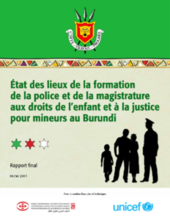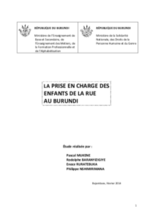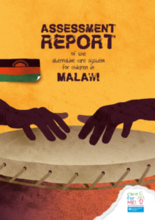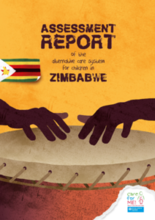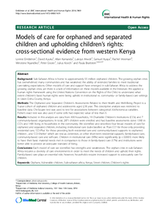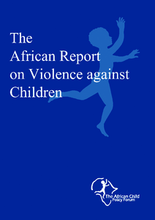Displaying 481 - 490 of 665
Ce rapport documente une initiative visant à assurer la sécurité et la justice au Burundi acteurs de la protection des enfants et la formation aux droits de l'enfant, dans le cadre d'un projet régional plus large.
Ce rapport documente la situation des enfants des rues au Burundi, y compris les facteurs qui les poussent dans les rues, et analyse les initiatives nationales cadres et gouvernementales législatives en place pour soutenir leurs soins et de protec
This systematic review assessed the quantitative literature to determine whether orphans are more likely to experience physical and/or sexual abuse compared to non-orphans in sub-Saharan Africa (SSA). It also evaluated the quality of evidence and identified research gaps.
This article reports on a mushrooming of children's institutions in Uganda and the poor standards of care and abuse met by children in those institutions.
This report from SOS Children’s Villages examines the range of services available to families in Malawi to prevent family separation as well as the administrative measures and national policy frameworks governing these services.
This report from SOS Children’s Villages presents a critical analysis of the Zimbabwe’s compliance with the UN Guidelines for the Alternative Care of Children which found “yawning gaps” between the laws and policies in place and the actual experiences of children on the ground.
The authors of this article applied a human rights framework using the United Nations Convention on the Rights of the Child to understand what extent children’s basic human rights were being upheld in institutional vs. community- or family-based care settings in Uasin Gishu County, Kenya.
This issue brief from the UNHCR highlights key messages from UNHCR in regards to alternative care, including the importance of making alternative care arrangements based on the best interests of the child and using residential or institutional care only as a very last resort.
This report, commissioned by the Ministry of Gender, Labour and Social Development of Uganda and supported by UNICEF, presents findings from an analysis on child poverty in Uganda, undertaken by the Economic Policy Research Centre.
This report, from the African Child Policy Forum, is aimed at informing and accelerating pan-African, regional and national efforts to prevent and respond to violence against children.

